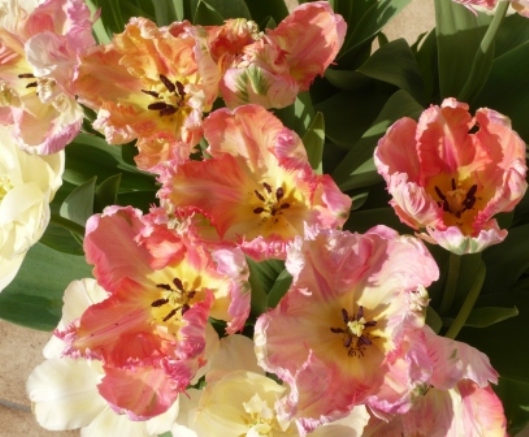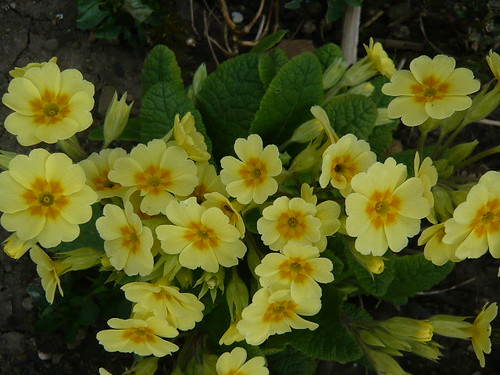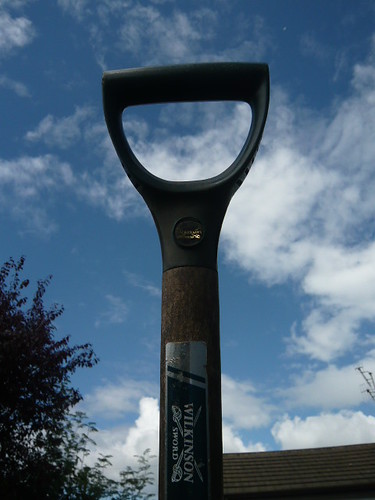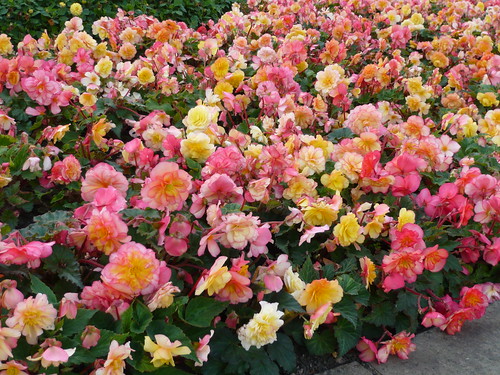
Tips for Starting Gardening
Starting Gardening? Try these tips
You don’t need a garden or even a window box to start your gardening journey. There are lots of ways to have fun and build up your skills and appreciation of gardening.
- When you can recognise plants in hedgerows and know a bit about them
- When you can smell plants in a public garden and appreciate the effort needed to get the display just so
- When you know what flowers to buy from a florist and how to care for them
- When you join a local gardening or horticultural club and get a social network plus gardening insights and support.
– then you are starting to be a skilled gardener.
That is not to say you shouldn’t have your own garden space. The therapeutic effect of your own patch of soil should not to be ignored – in my opinion it can’t be overstated.
- Growing your own choice of plants will be reward in it’s self
- Using your artistic and creative style will create a personal and individual garden space that repays your planning and execution of the core gardening skills.
- Features you include can help the family, the environment, the locality and even your culinary experience if you grow herbs fruit and vegetables
So some simple tips for new gardeners
- Look around you at anything that grows.
- Consider why and how a plant is thriving is it naturally occurring or placed, is it a natural time or place to find it, how might it survive and reproduce
- Pace yourself: the garden can’t be rushed and there is a time for everything. You need to be ‘able to stop and smell the flowers’ because there will also be a fair bit of work involved once the gardening bug bites.
- Don’t forget gardening is for fun – if its not fun its horticulture
Starting Digging – It is enough to make you spit!
.
You may spit in more ways than you think because I want to start with some definitions, then after your hard work you may end up with an aching back.
A spade is the key digging tool costing from £15-£75 and coming in several sizes and blade shapes but an average one that doesn’t lift too much and has a stainless blade is my favourite and cost me £34.
A fork is the pronged implement used for breaking up compacted soil or turning material like straw or garden compost.
A spit is the spade depth of a hole about 12 inches
Double digging is where a row one spit deep is removed to form a trench. Then the base of the trench is dug again often with a fork and to include compost. The next row is then put on top until at the end of the patch the first soil removed is replaced.
If double digging try not to get sub-soil brought up to the surface. This is the compacted layer of clay, shale, rock ledges, gravel beds, deep sand, or hardpan under the surface of good soil that is so deep it hasn’t got any accessible nutrients or bio activity may make the development of garden soil extremely difficult or impossible.
Tilth is the top soil that can be broken down into finer crumbs of soil for planting and seed sowing
A rake is used for weeding and to even out lumpy soil and create a good tilth
Reasons for digging:
- To get necessary air into the soil,
- To allow water to penetrate,
- To assist drainage if the soil is heavy so that plant roots can penetrate deeper without becoming waterlogged,
- To help worms and friendly insect activity.
- To incorporate organic matter such as garden compost
- To help remove weeds particularly those with long roots
- To get a good soil structure and open tilth
Double digging probably isn’t worth the extra effort in most cases unless you have a particular problem eg with drainage or want to grow particular crops eg. parsnips.
Starting to grow plants – then avoid these problems
- Avoid exotic plants from warmer climates – they are likely to be delicate and struggle in the UK through lack of sun, warms and an excess of rain. Ask your garden center if unsure.
- Look around your area and see what does well – from my window I can see holly and hawthorn with some yellow forsythia in the hedge. Then there are daffodils and polyanthus under Choysia (Aztec Pearl) and flowering currant shrubs with roses that are just coming into leaf.
- If you are new to gardening try to avoid expensive disappointments that may put you off.
- Avoid seeds until you have some experience unless you are really keen. They can be labour intensive and not as successful as seedlings, plug plants and plants bought ready grown.
- To cover a large area and are keen to try seeds look for those that you can sow direct into the ground the bigger the seeds the better for spacing eg Sunflower, Nasturtiums, Sweet peas, Calendula and at the smaller, scatter it for fun end Night Scented Stocks, Californian poppy (Eschscholzia californica)
- Avoid buying plants that look like they are in distress. I have just seen a large display of dead and dying plants and seedlings inside a hot, airless, dry national chain. Otherwise good seedlings were withered and discounted or just plain dean. Shrubs in plastic bags with a printed wrapper were showing ‘forced’ leaves that were thin spindly and weak. Not only did I leave the plants alone I left the shop alone and will do in the future.
- Avoid planting at the wrong time. I know you wouldn’t plant out in the garden your house plants in the middle of winter, would you? In fact most plants are best planted after the danger of frost has passed – some time in May depending where your gardening.
- By the same token it is no use planting a fruit tree in May for a crop that year as it needs to drink through summer – in fact the backend is better as it then has time to settle.
- Spring bulbs also need a period of winter time in the ground so plant Daffodils in Sept/Oct and Tulips in November to give you a better spring show.

Other Resources
Royal Horticultural Society RHS ‘Gardening for All’
National Council for Conservation of Plants and Gardens ‘Conservation through Cultivation.’
Garden Organic National Charity for Organic Gardening.
BBC Gardening


